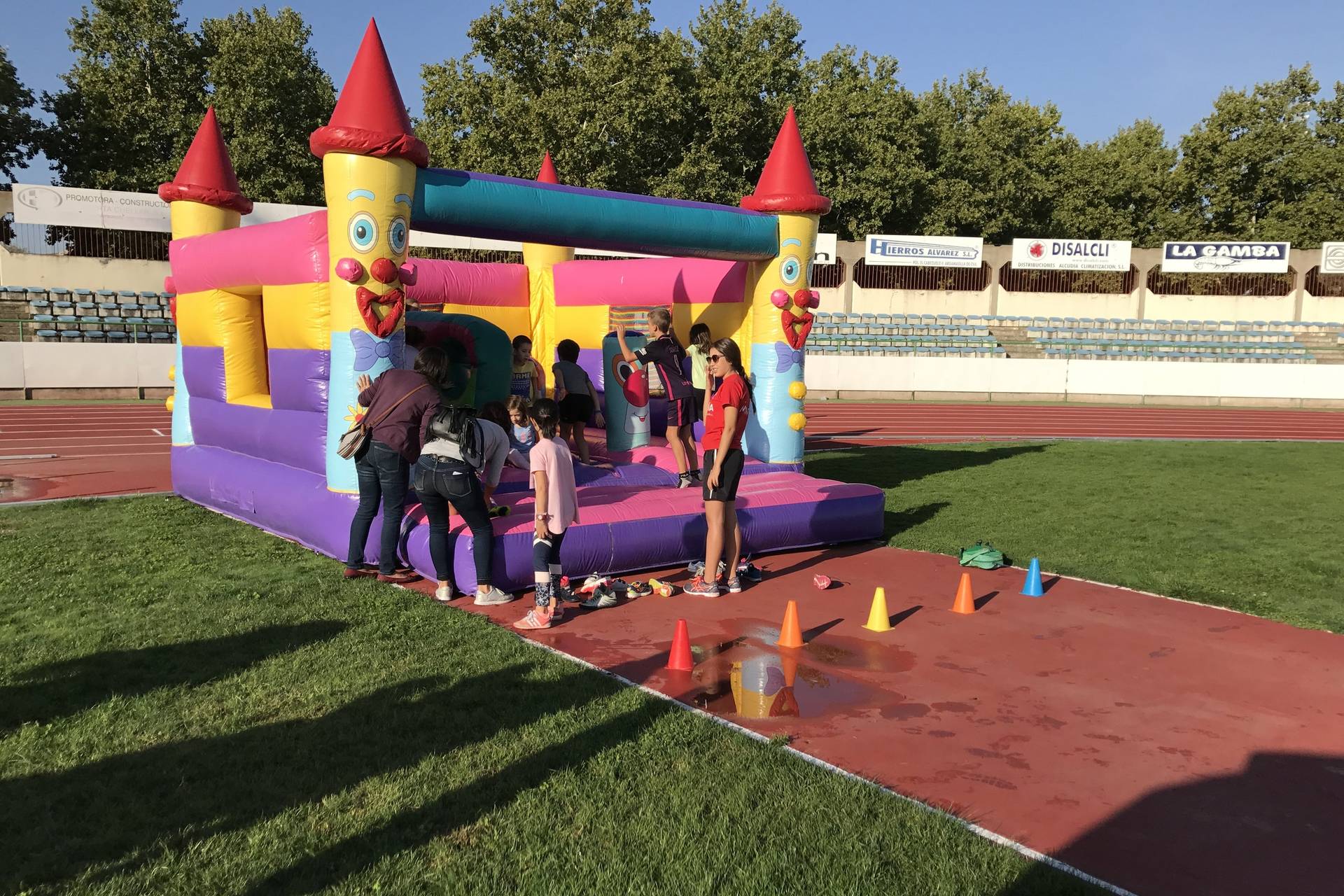
Hakuna Matata y As de Guia Consulta disponibilidad y precios
popsugar. The origin of the phrase is Swahili. Hakuna means "there is/are not" or "no," and matata is a plural form of "trouble" or "entanglement.". It can also be defined as "everything is okay.". It is a tenet of the philosophy of Ubuntu. Hakuna matata tends to be used more commonly with tourists in this post- Lion King.

Los centros de ocio infantil como el de “Hakuna Matata” en Puertollano, preocupados “por la
HakunaMatata Ocio, Puertollano. 1,321 likes · 62 were here. Centro de Ocio. Cumpleaños, Decoración con globos, Peque Ocio Mañanas, Animación Infantil.

Los centros de ocio infantil como el de “Hakuna Matata” en Puertollano, preocupados “por la
" Hakuna matata " is a Swahili phrase, meaning "no trouble" or "no worries" and "take it easy" (literally hakuna: "there is no/there are no"; matata: "worries".) The 1994 Walt Disney Animation Studios animated film The Lion King brought the phrase to Western prominence in one of its most popular songs, in which it is translated as "no worries".

Hakuna Matata YouTube
The lyric "hakuna matata" is a Swahili phrase, and it really does translate as "no worries!" According to a bonus feature on a special edition DVD of the original animated The Lion King, the.
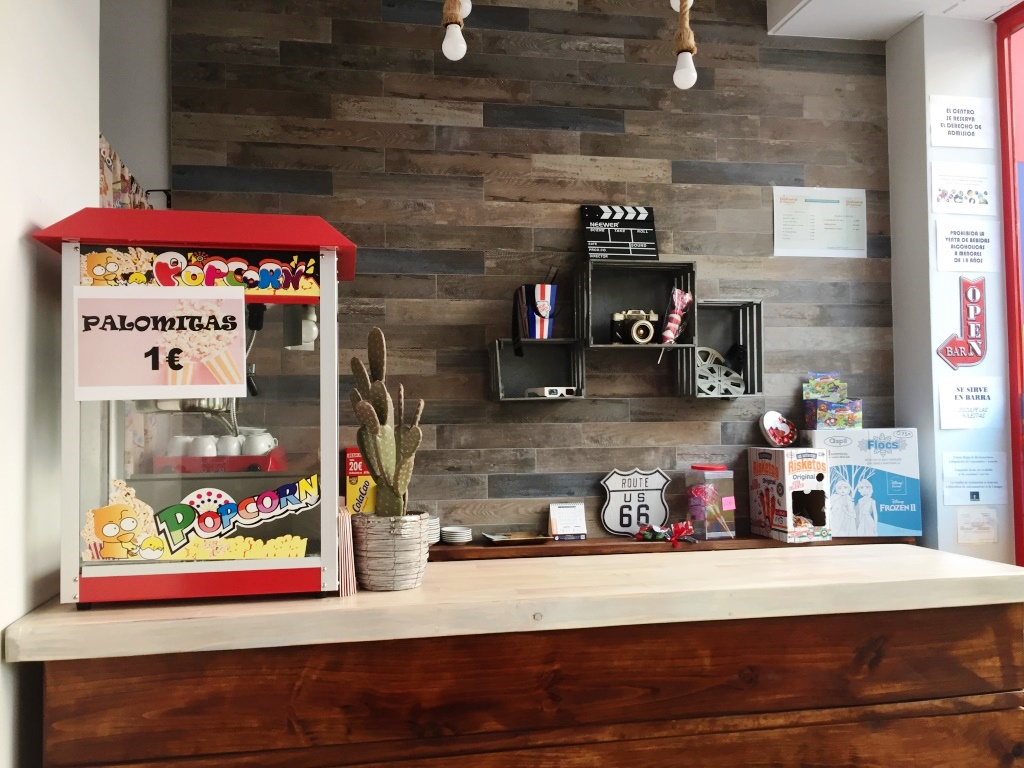
El Centro de ocio Hakuna Matata de Puertollano cumple seis años
Translated from Swahili, "Hakuna Matata" means "no worries" or "no problems." The song beautifully captures the essence of embracing a carefree mindset, encouraging listeners to let go of their troubles and live in the present moment. It serves as a reminder to enjoy life's simple pleasures and find solace in the tranquility of nature.

Los centros de ocio infantil como el de “Hakuna Matata” en Puertollano, preocupados “por la
Hakuna Matata in Music. "Hakuna Matata" is a well-known song from Disney's beloved 1994 animated film, The Lion King. This catchy tune reflects the Swahili phrase meaning "no trouble" or "no worries.". Its uplifting message resonates with audiences as it captures the carefree philosophy of the characters Timon, a meerkat, and.

Hakuna matata YouTube
Find the perfect room with easy filters, read real reviews, and get live help any time. Lock in today's lowest rates and pay nothing upfront, or cancel free for max flexibility!
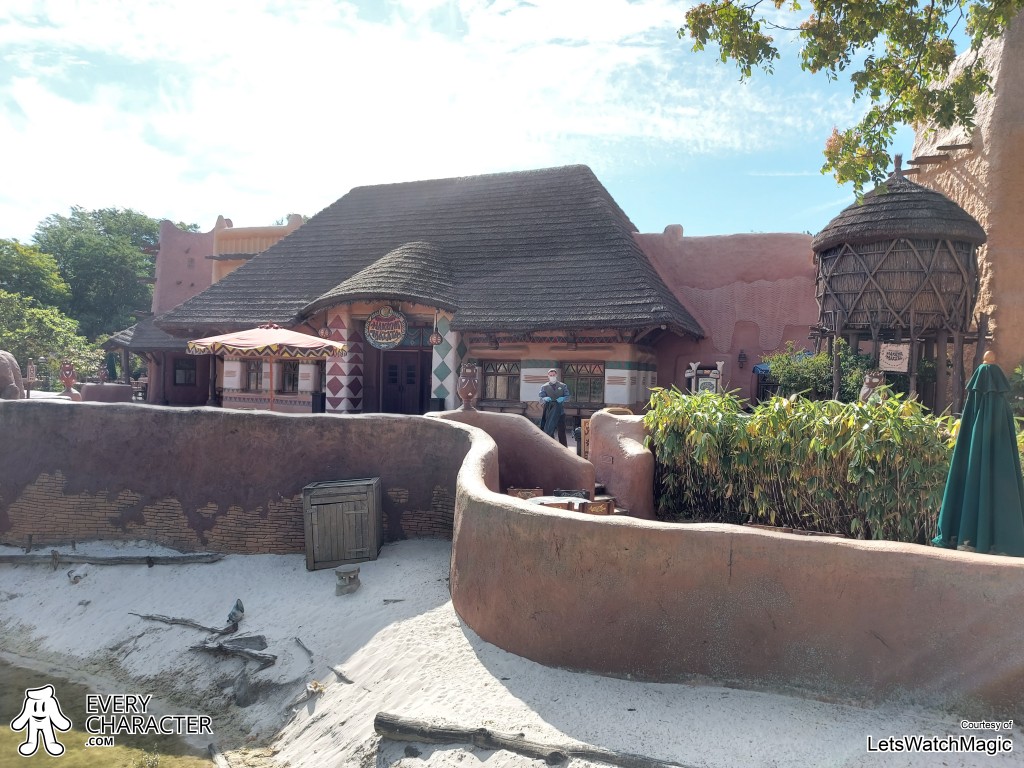
DLP Hakuna Matata Restaurant on
" Hakuna matata " is a Swahili phrase, meaning "no trouble" or "no worries" and "take it easy" (literally hakuna: "there is no/there are no"; matata: "worries".) The 1994 Walt Disney Animation Studios animated film The Lion King brought the phrase to Western prominence in one of its most popular songs, in which it is translated as "no worries".
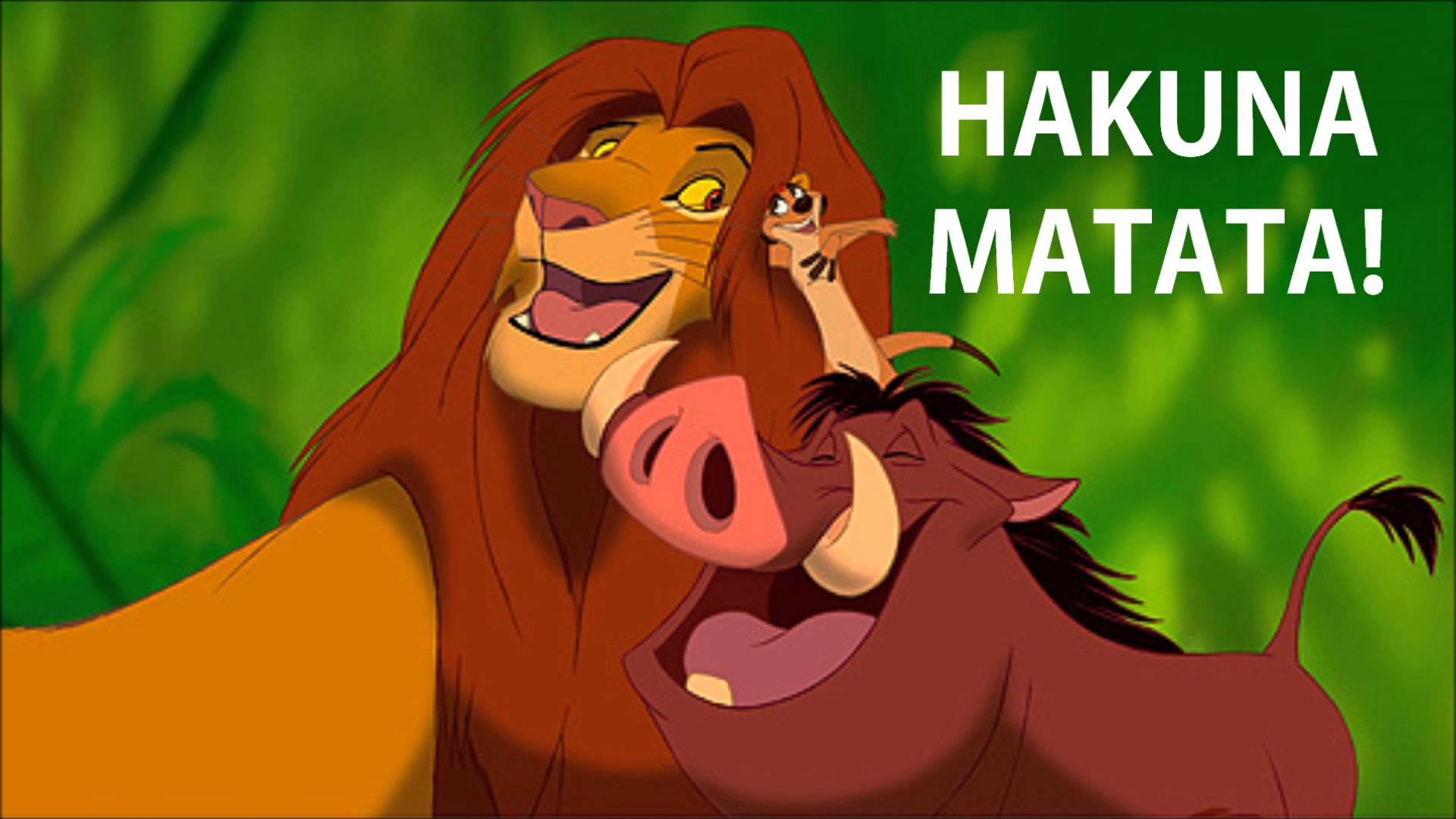
8 Situations In Life When 'Hakuna Matata' Can Be Used To Solve The Problem (in some way atleast
A petition accusing Disney of "colonialism and robbery" for trademarking a phrase used in the film The Lion King has attracted more than 30,000 signatures. "Hakuna matata" means "no problem" or.
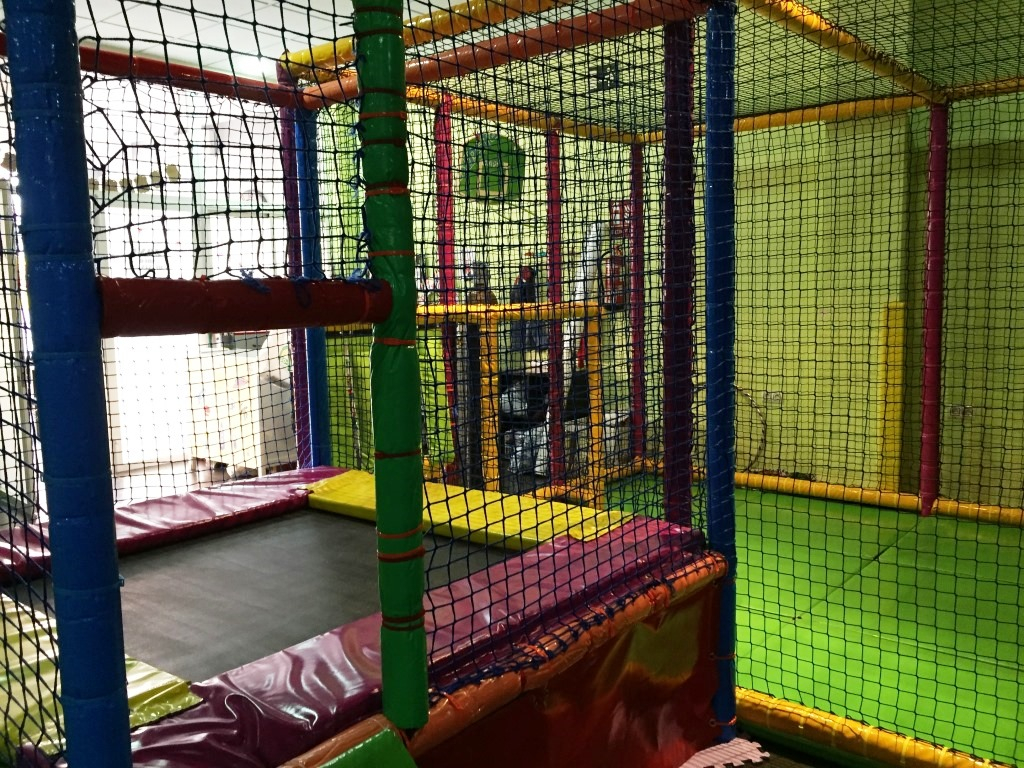
El Centro de ocio Hakuna Matata de Puertollano cumple seis años
Hakuna matata! Ain't no passing craze! It means no worries, for the rest of your days. It's our problem-free philosophy. Hakuna matata! Why, when he was a young warthog. When I was a young.

Los centros de ocio infantil como el de “Hakuna Matata” en Puertollano, preocupados “por la
The Hakuna Matata symbol signifies a worry-free philosophy and a stress-free life. Hakuna Matata is a Swahili phrase that translates to "no worries" or "no troubles.". The phrase and its symbol gained immense popularity after being featured in Disney's animated film, "The Lion King.". The Hakuna Matata symbol represents the idea.
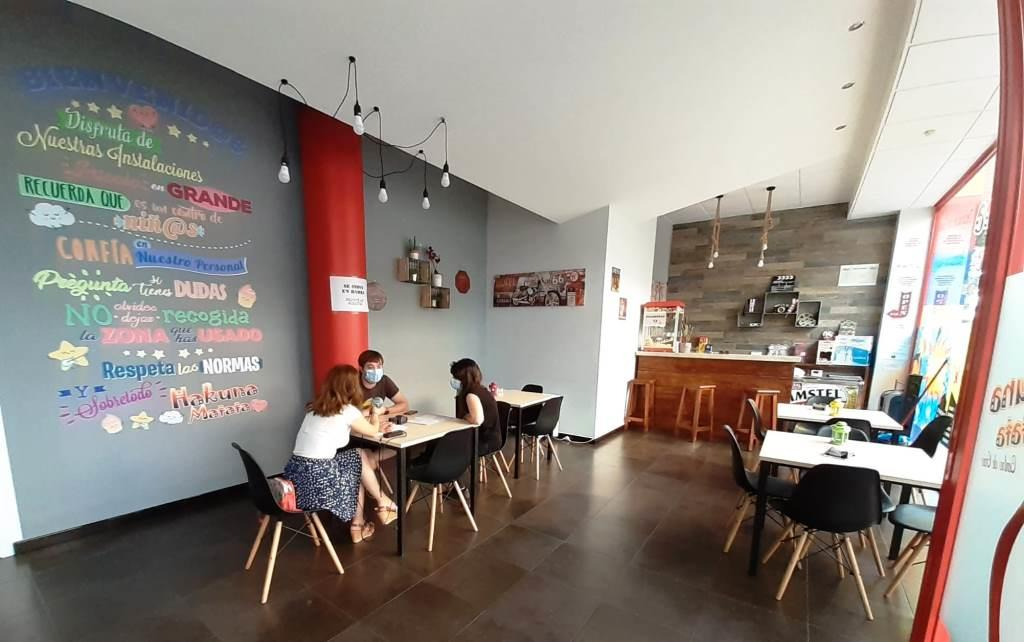
Los centros de ocio infantil como el de “Hakuna Matata” en Puertollano, preocupados “por la
Hakuna Matata: Exploring the Meaning Behind the Famous Phrase. In the Swahili language, there is a phrase that has gained worldwide recognition and popularity, thanks to the 1994 Disney film The Lion King. That phrase is "Hakuna Matata," which translates to "no worries" or "no problems." This catchy phrase has captured the hearts of.
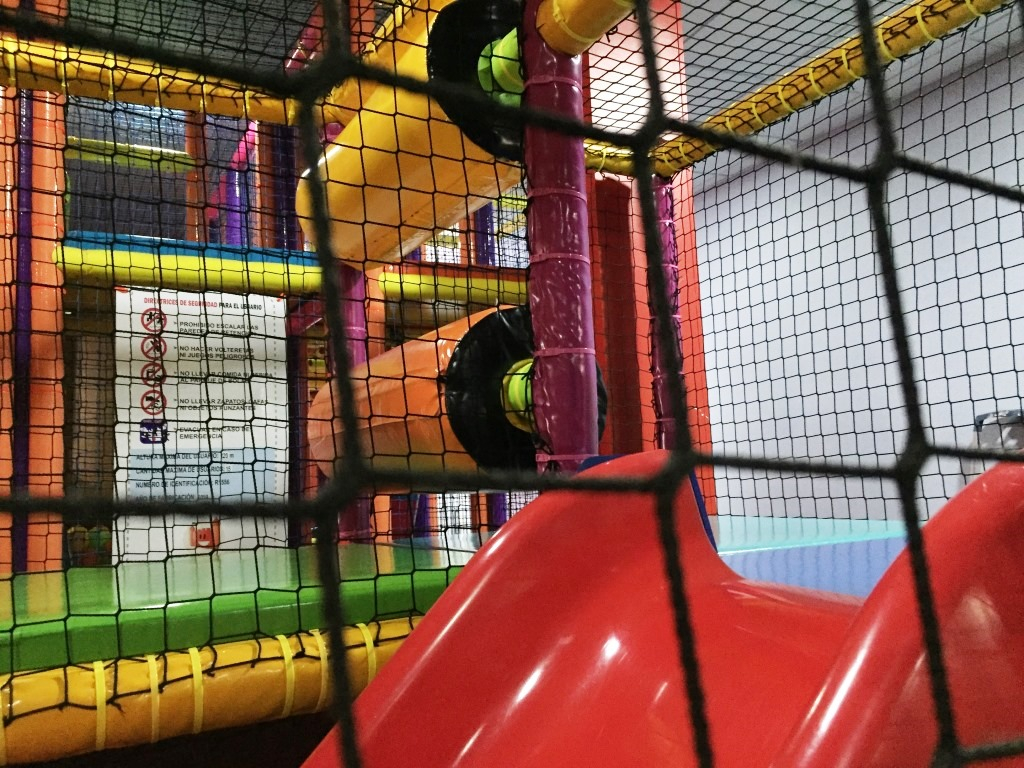
El Centro de ocio Hakuna Matata de Puertollano cumple seis años
"Hakuna Matata" (meaning "no worries" in Swahili) is the theme song and personal anthem of Timon (Nathan Lane), Pumbaa (Ernie Sabella), and Simba (Jason Weaver) from Disney's 32nd animated feature The Lion King. It was composed by Elton John, who also composed other songs from the film, and with the lyrics by Tim Rice. It is Timon and Pumbaa's signature song. In the movie, the song was sung.

Hakuna Matata Oruro
El centro de ocio Hakuna Matata, emplazado en la calle Gran Capitán 43, de Puertollano, propone en tiempos de confinamiento por la crisis sanitaria del coronavirus, entretenimiento y solidaridad a la vez para los más pequeños, pero eso sí, siempre desde casa, contribuyendo además a mantener la mente y las manos entretenidas en estos días duros para todos.
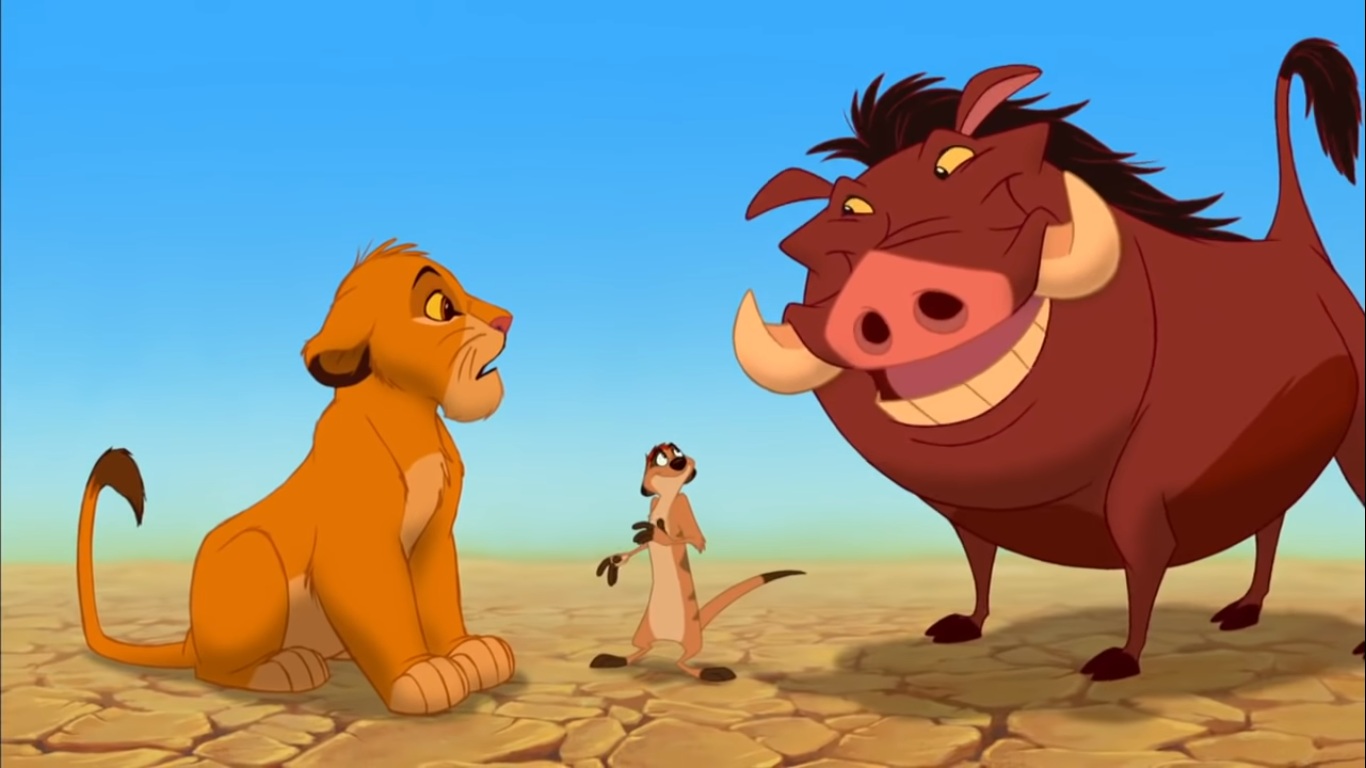
Disney's 'Hakuna Matata' Trademark Issue Leads To An Online Petition
Hakuna Matata meaning broken down. Two Swahili words form the phrase: Hakuna 'there are no/there is no'; Matata, the plural of the word 'problem'; The meaning of Hakuna Matata is reminiscent of the feel-good tune, "Don't Worry Be Happy," popularized in the 1980s by singer-songwriter Bobbie Ferrin. Since The Lion King's release, it's common to hear English speaking visitors to.

Hakuna Matata Band of Geeks
The term "Hakuna Matata" (pronounced [ha kuna ma tata]) literally means the lyrics of the song. It is a Swahili language (language of the Swahili people) term founded in Central East Africa. Although research showed that the tourists use it more than the natives.The term means "no worries". According to wikipedia "Hakuna means.